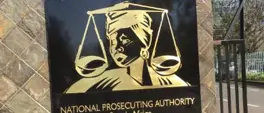Court set to hear historic challenge to rape laws
Bernadette Wicks
1 July 2024 | 5:40The case was launched in 2022 by NPO The Embrace Project, and a young woman only identified as IH, who argue the law isn't strict enough on rape-accused whose defence is that they believed there was consent.
JOHANNESBURG - A historic challenge to rape laws that civil society groups say give perpetrators an easy out, is set to come before the High Court in Pretoria this month.
The case was launched in 2022 by non-profit organisation, The Embrace Project, together with a young woman only identified as IH.
ALSO READ:
- SCA reinstates 2021 ruling convicting paramedic of raping his girlfriend
They say the law isn't strict enough on rape-accused whose defence is that they believed there was consent.
Second applicant in the case, IH, opened a rape case after a harrowing ordeal at the hands of a man she met on the internet. But he was acquitted after the court found that while she had not consented, it couldn’t be sure he didn’t know that.
"There are many others in her position. So I genuinely believe if this law is changed it would benefit any future victim or survivor in her position and hopefully nobody would ever have to go through that secondary trauma of having to sit through a trial and recount to a court under cross-examination the ordeal that she underwent and then still to come out of that and be told that all things indicate that you were raped but the law doesn’t allow us to convict your perpetrator so he gets to walk free," said the director and co-founder of the Embrace Project, Lee-Anne Germanos.
PERCEPTION VERSUS REALITY
“Rape culture, rape stereotypes, and rape myths are prevalent in South Africa, and are frequently perpetuated,” Germanos explained in the papers.
“For example, there is a misconceived notion that a person must be forced or threatened in order for a rape to be ‘legitimate’. There is a further misguided expectation that consent is present unless there is a vocal or physical response of fighting, kicking, or screaming. Of further concern is the notion that if one consents to one type of sexual act, then they have consented to everything, and that consent cannot be withdrawn once sexual contact has begun.
“More specifically, as evidenced by recent cases, there is a perception, among some, that any form of foreplay can be construed as consent”.
In support of their case, the applicants point to the acquittal of IH’s alleged rapist on the basis that the court could not be sure he subjectively knew he did not have consent, because she didn’t signify her opposition.
They also point to the highly publicised case of Eastern Cape paramedic Loyiso Coko, who was in 2018 found guilty by the Makhanda Regional Court of raping his girlfriend, but then had his conviction overturned on appeal by the High Court, which found the state had not proven beyond reasonable doubt that he “acted intentionally knowing that there was no consent”.
That ruling has now been set aside by the Supreme Court of Appeal.
Ultimately, the applicants in this challenge say the problem lies with the legal definitions of rape - and indeed other consent-based sexual offences - as they appear in the Criminal Law (Sexual Offences and Related Matters) Amendment Act, and want them declared unconstitutional and invalid insofar as they don’t criminalise sexual violence in these instances.
“The standard of fault for each of these offences is ‘intention,’ with no qualification as to the reasonableness of a mistaken belief in the presence of consent. As a result, an unreasonable belief in the presence of consent, even where the State has proved the absence of consent, is a complete defence to a charge of any of these offences,” said Germanos.
This, she said, left the State with an “extraordinarily high burden to prove that the accused's claim that he perceived consent is not reasonably possibly true”.
“For example, in a case where the complainant knew their attacker (which is the vast majority of cases of rape and other sexual violence), did not physically resist or loudly protest, or consented to some but not other intimate acts, this burden will, more often than not, be insuperable,” she said.
They argue further “by enabling a defence of unreasonable belief in consent, the act violates the rights of victims and survivors, to equality, dignity, privacy, bodily and psychological integrity, and freedom and security of the person”.
“It should not be required that the accused subjectively knew, beyond a reasonable doubt, that consent was lacking; it should be sufficient for the State to prove that the accused could not reasonably have believed that the complainant was consenting,” said Germanos.
STATE FINDS NO FAULT IN DEFINITIONS
The Justice Minister is opposing.
Chief Director of Legislative Development Leonard Tsietsi Sebelemetja, who deposed to the answering affidavit, said there was nothing wrong with the definitions as they stand.
When it came to the two cases cited, he said their position was that both were in fact wrongly decided.
He highlighted that the courts are constitutionally obliged to promote the spirit, purport and objectives of the Bill of Rights when interpreting legislation, and therefore should not interpret the definitions in question in a way that is inconsistent therewith.
“An accused person who has an unreasonable belief that the complainant consented when she had not would have been at least reckless as to the existence of consent, and the requirements for dolus eventualis would have been met,” he said further,
“Unreasonable beliefs are held by our courts as ‘not reasonably possibly’ true and rejected as false”.
The applicants contend that for a “mistaken belief defence” - as it is known - to be valid, an accused should have to have taken “objectively reasonable steps” to ascertain there was consent.
But, said Sebelemetja, their application sought to place the burden of proof on the accused, which would “essentially reverse the right to be presumed innocent until proven guilty”.
The Centre for Applied Legal Studies has also been added as a third applicant in the case, and in its papers argues that at its core, the issue is with defining rape and other sexual offences in terms of a lack of consent.
The centre said this placed the burden of proof on the prosecution to prove an accused did not mistakenly believe a complainant had consented, and that it implicitly created an obligation on a complainant to show that she did not consent.
The Centre for Human Rights and the Psychological Society of South Africa have also both been admitted both as amici curiae, or friends of the court.
Get the whole picture 💡
Take a look at the topic timeline for all related articles.













